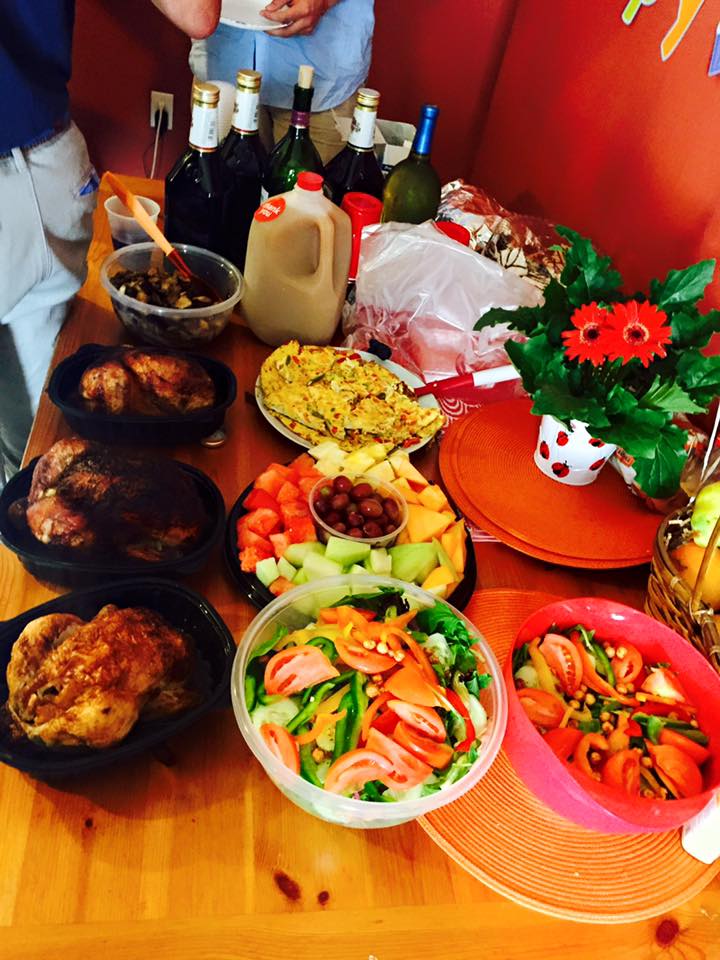Breaking bread together is one of the most ancient forms of developing and fostering relationships. We like food, we need food, and we have a socially profound urge to share food. Throughout history, we have come together to satisfy our daily hunger cravings by pumping fuel into our body. Eating fulfills our most basic physiological needs and, as a group event, the act of eating in a traditional dining setting also satisfies our entire hierarchy of needs from safety to love, esteem, and self-actualization. Consequently, when we don’t eat together, we can suffer academically, psychologically, and physically.
Research shows that dining together enhances students’ academic performance. The National Center on Addiction and Substance Abuse at Columbia University “found a striking relationship between frequency of family meals and grades. In 2003, the percent of teens who got A’s was 20% of those who ate with their families 5 or more times per week compared to only 12% of those who ate with their families 2 or less times per week.” 1 Although this study refers to family meals, college students are able to replicate this when dining with close friends because intimate meals allow us to be emotionally content and have positive peer relationships. This enhancement of our social and emotional well being carries into our cognitive abilities, resulting in heightened academic performance. Additionally, what seems like a mental break from the day is actually a relaxing way of expanding our knowledge as we constantly learn from our discussions and expand our perspectives. In Alice Julier’s book Eating Together, Julier “argues that dining together can radically shift people’s perspectives: It reduces people’s perceptions of inequality, and diners tend to view those of different races, genders, and socioeconomic backgrounds as more equal than they would in other social scenarios.” 2 Communication, especially in the welcoming environment of a dining area, is the key to understanding others as well as ourselves.
We cannot reap these cognitive benefits with the wrong dining environment. A healthy dining experience facilitates conversations that provide us the opportunity to bond, connect, and share with each other, creating a unifying feeling of warmth and amiability. That means no phones and other forms of technology. Without distractions, we are bound to have spontaneous and unpredictable conversations, allowing us to discover more about each other, whether it is an event from that day or a story from our childhood. When we appreciate the good food and even better company, dining can bring simple joy to our day.
To enhance your dining experience, try actually cooking the meal. Although, we can bond in the Bison or the Commons, making food with our friends (or family) gives a lasting meaning to tradition and our cultural heritage. When we cook together, we have more time to connect, interact, while contributing to the gradual emergence of a great meal. It invites us to learn more about each other’s backgrounds – perhaps the oregano sprinkled on top was advice given by an Italian grandparent. Additionally, if you cook with just one other person, there is “ truth to the idea that if you cook it well, they will come,” according to Janet Peterson, author of the book, Remedies for the ‘I Don’t Cook Syndrome.’ 3 Even those friends who are busy still have to eat.
Besides our inner state of being, our physical bodies also improve when we dine in a group setting. Since it takes the brain 15 or 20 minutes for us to recognize when our stomachs are full, people who eat fast are more likely to overindulge. In fact, a study from the University of Rhode Island “found that those who ate slowly ate 1/3 less than those who ate fast. 4 While conversing with friends, we slow down our eating by talking, granting us more time to recognize when we are satiated. Additionally, eating on the go leads to overindulgence. This could be attributed to thinking we are exercising and rewarding ourselves or it could be to mindlessness. We are focusing on our destination and not our food. As a caveat, however, it can be easy to binge in social settings, even with one or two other people. Don’t let your companions’ habits affect how much food you consume. Stay mindful to your own food intake so you can continue to eat socially without the guilt of overeating.
We can’t let the traditional family meal end in college just because we don’t have our mothers calling out to us that our food is getting cold. In college, intimate meals and a healthy dining environment are just as important as they were in our child and teenage years. In the words of sagacious Virginia Woolf, “One cannot think well, love well, sleep well, if one has not dined well.”
- “Family Meals.” Springer Reference (2011): n. pag. Purdue University. Web. 5 Oct. 2015. ↩
- Delistraty, Cody C. “The Importance of Eating Together.” The Atlantic. Atlantic Media Company, 18 July 2014. Web. 05 Oct. 2015. ↩
- Campbell, Carolynn. “Bond with Your Family: Eat Together.” Power to Change Bond with Your Family Eat Together Comments. Power to Change, 27 May 2013. Web. 05 Oct. 2015. ↩
- Cohen, Jennifer. “9 Bad Habits That Make You Fat.” Forbes. Forbes Magazine, 24 Apr. 2012. Web. 05 Oct. 2015. ↩



Leave a Reply